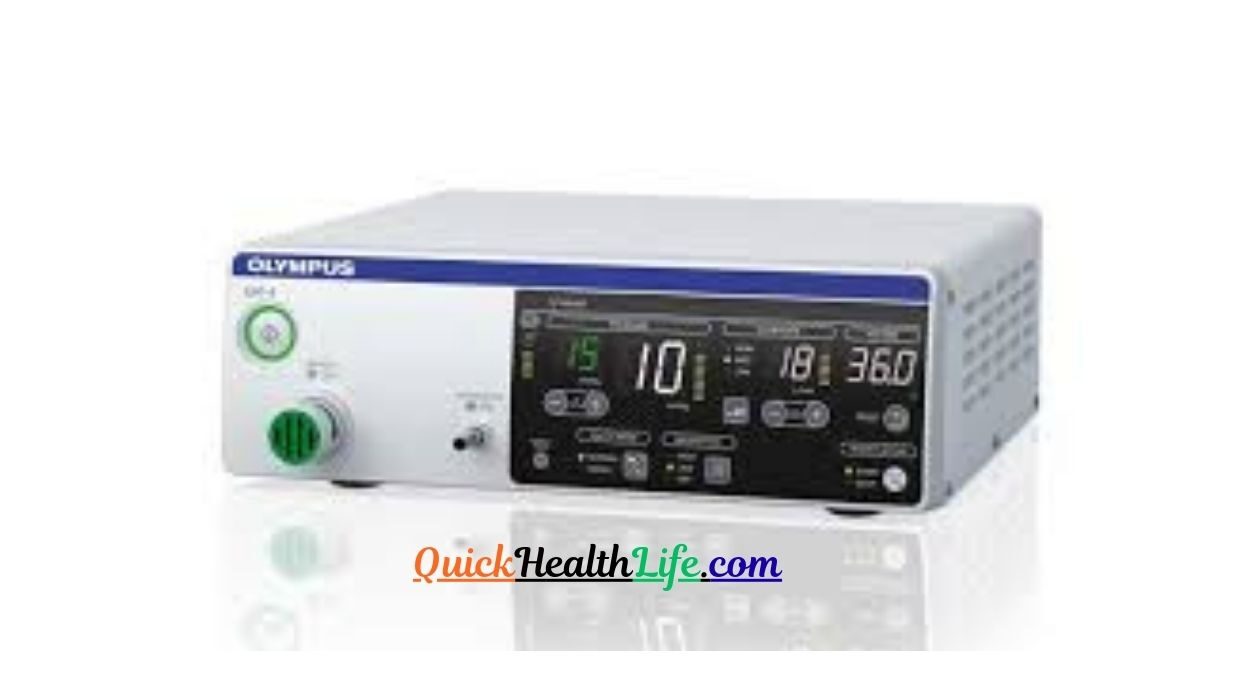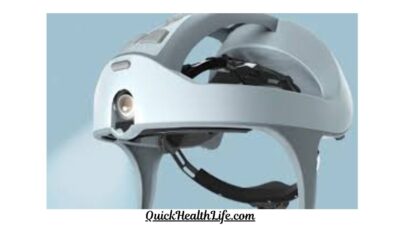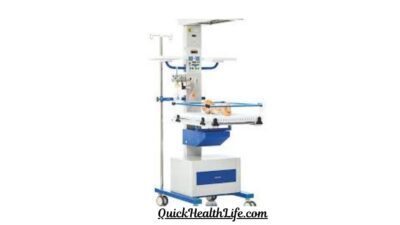What Is a CO2 Insufflator?
A CO2 insufflator is a medical device that gently pumps carbon dioxide gas into a body cavity during procedures like laparoscopy or endoscopy. This creates space for surgeons to see and work clearly. Unlike room air, CO2 is absorbed quickly by the body and reduces discomfort.
Table of Contents
How a CO2 Insufflator Works
The machine connects to a CO2 cylinder and delivers gas through a special pipe. It carefully controls pressure and flow rate to keep patients safe.
Why CO2 Is Preferred Over Other Gases
Doctors prefer CO2 because it is non-flammable, easily absorbed, and less painful for patients. Compared to room air, it lowers the risk of complications such as gas embolism.
Key Components of the Machine
- CO2 Cylinder – Source of gas
- Regulator & Flow Meter – Maintains steady flow
- Display Panel – Shows pressure levels
- Insufflation Tubing/Pipe – Transfers gas
Understanding Insufflation Meaning
Insufflation simply means “to fill a space with gas or air.” Here it refers to filling the abdomen or another cavity with CO2.
Procedure: Step-by-Step Use of CO2 Insufflator
- Preparation: Sterilize equipment and check gas cylinder.
- Connection: Attach tubing to the machine and the patient’s port.
- Calibration: Set pressure and flow according to procedure.
- Insufflation: Start gentle CO2 flow to expand the cavity.
- Monitoring: Constantly watch pressure to avoid injury.
- Completion: Stop gas flow and safely remove equipment.
Types of CO2 Insufflators
Basic Single-Mode Units
Ideal for small clinics, these are budget-friendly and easy to operate.
Advanced Multi-Mode Systems
Used in large hospitals; they offer precise flow control and alarms.
CO2 Insufflator for Endoscopy
Specially designed for GI endoscopy, ensuring patient comfort and faster recovery.
When and Why It’s Used
- Laparoscopic surgeries
- Gastrointestinal endoscopy
- Hysteroscopy
- Minimally invasive urology procedures
Benefits of Using CO2 Insufflation
- Reduced post-op pain
- Better visualization
- Lower infection risk
- Faster recovery
Risks and Possible Complications
What Is a CO2 Embolism?
A CO2 embolism happens if gas accidentally enters a blood vessel. It’s rare but serious, and careful monitoring prevents it.
CO2 Insufflator Price & Cost Factors
The CO2 insufflator price varies from ₹1,00,000 to ₹4,00,000 (approx. USD $1,200–$4,800).
Factors affecting cost:
- Brand and model
- Features like digital controls
- Country of purchase
- Warranty and service support
Top Brands and Models
- Karl Storz CO2 Insufflator – Premium German engineering
- Olympus CO2 Insufflator – Reliable for endoscopy
- Stryker & Smith & Nephew – Widely used in hospitals
Maintenance and Care Tips
- Regularly clean tubing and connections
- Replace filters as per guidelines
- Annual calibration is a must
CO2 vs. Air Insufflation
| Feature | CO2 | Room Air |
|---|---|---|
| Absorption Speed | Fast | Slow |
| Patient Comfort | High | Low |
| Risk of Pain/Bloating | Low | High |
How to Choose the Right Machine
- Check flow rate range
- Look for digital pressure control
- Verify service availability in your region
- Compare warranties and after-sales support
FAQs
1. What is a CO2 insufflator used for?
It’s used to inflate a body cavity with carbon dioxide during surgeries or endoscopy.
2. What is the function of the insufflator?
It controls the pressure and flow of CO2 to create a safe working space.
3. What is the cost of carbon dioxide insufflator?
Between ₹1,00,000 and ₹4,00,000 depending on brand and features.
4. Can I use room air instead of CO2?
Not recommended—CO2 is safer and more comfortable.
5. Which brands are best?
Karl Storz, Olympus, and Stryker are top choices worldwide.
6. How often should it be serviced?
At least once a year for calibration and safety checks.



